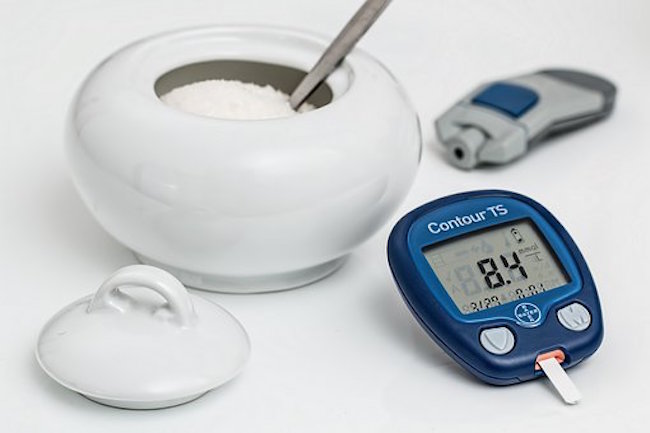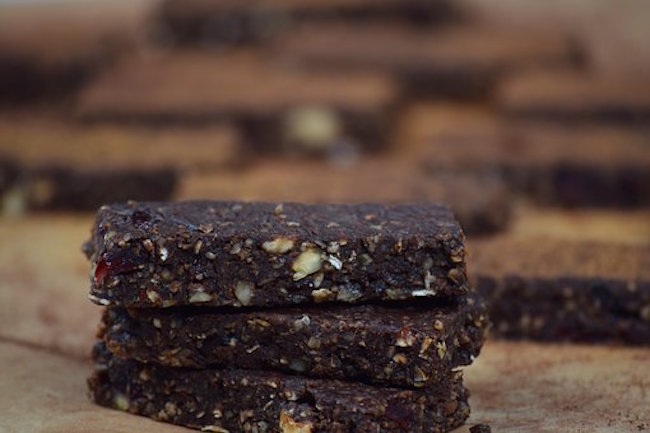Stay Hydrated to Keep Your Glucose Level in Check by Dr. Joseph Mercola for Mercola For the first time in more than 20 years, data from the National Center for Health Statistics1 showed a drop in life expectancy in 2015. Life expectancy dropped again in 2017.2 Although the 10 leading causes of death remained the same in 2017 as 2016, they accounted for only 74% of all deaths.3 One of the primary perpetrators of this decline is believed to be drug overdoses, but another major factor pinpointed by a supporting study4 is Type 2…
READ MORETag: diabetes
Fasting Prevents and Halts Diabetes
Fasting Prevents and Halts Diabetes by Dr. Joseph Mercola for Mercola Fasting has been practiced for centuries. In fact, science shows that, like animals, we have a fasting instinct that extends through the ages: Hippocrates prescribed and championed fasting while using apple cider vinegar.1 Religions around the world developed fasting independently as a practice and the Greeks not only prescribed it for illness, but required it in preparation for many rituals to contact supernatural forces. Fasting has also been used as a means of political protest. Gandhi fasted on at least…
READ MOREConsumption of dairy foods, red meat and processed meat has varied health implications at key life stages
Consumption of dairy foods, red meat and processed meat has varied health implications at key life stages by: Evangelyn Rodriguez for Natural News In this review, a researcher from the University of Reading in the U.K. examines the role of dairy foods and red meat at key life stages in terms of their ability to reduce or increase chronic disease risk. This article, which includes a discussion about recent meta-analyses and updated reports on the associations between dairy foods, red meat and processed meat, and various cancers, was published in the journal animal. In the…
READ MOREWhy Calcium Propionate Is Strongly Linked to Diabetes and Autism
Why Calcium Propionate Is Strongly Linked to Diabetes and Autism by Dr. Joseph Mercola for Mercola The degree to which a food has been altered during preparation lies on a continuum. Anything not directly harvested from the vine, ground, bush or tree has undergone some degree of processing. Processing may be as basic as freezing, canning or drying, or it may involve ultra-processing where food is significantly altered — foods you may typically purchase at a gas station. Unfortunately, Americans not only eat a preponderance of processed foods, but 57.9% is…
READ MORETop 8 Tips to Optimize Your Blood Sugar Level
Top 8 Tips to Optimize Your Blood Sugar Level by Dr. Joseph Mercola for Mercola Insulin is essential to staying alive; unfortunately, the vast majority of people have resistance to this essential hormone, speeding up the aging process and contributing to the development of degenerative diseases. Any meal high in grain and sugar carbs typically generates a rapid rise in blood glucose. To compensate, your pancreas secretes more insulin into your bloodstream to lower your blood sugar. Insulin, however, is also very efficient at lowering blood sugar by turning it into fat.…
READ MORELink Between Sugar and Alzheimer’s Strengthens
Link Between Sugar and Alzheimer’s Strengthens By Dr. Mercola for Mercola Alzheimer’s disease — for which conventional medicine believes there is no effective treatment or cure — currently affects an estimated 5.4 million Americans1 and prevalence is projected to triple by 2050.2,3 Within the next two decades, this severe and lethal form of dementia may affect as much as one-quarter of the U.S. population. Already, more than half a million Americans die from the disease each year, making it the third leading cause of death in the U.S., right behind heart disease…
READ MOREDiet and language: Type 2 diabetes linked to decline in speech skills among the elderly, says study
Diet and language: Type 2 diabetes linked to decline in speech skills among the elderly, says study by: Zoey Sky for Natural News If you are diagnosed with Type 2 diabetes, you need to follow a nutritious and healthy diet since the condition affects your blood glucose levels. But diabetes doesn’t just affect your blood sugar. According to a study, Type 2 diabetes can also affect verbal fluency, especially among older patients. The study was published in the journal Diabetologia. Diabetes and brain function According to the Australian researchers who conducted it, Type 2 diabetes may…
READ MOREControl Your Type 2 Diabetes or Die in TEOTWAWKI
Control Your Type 2 Diabetes or Die in TEOTWAWKI by Scott M for Survival Blog I am a family physician and I have type 2 diabetes. Type 2 diabetes is where you initially have enough insulin produced by your body but are resistant to the insulin, i.e.: you don’t have enough receptors for the insulin to plug into to act on the sugar/carbohydrates you ingest. As time goes on if you don’t manage your diabetes your body will stop producing insulin and you will need to be on insulin shots for the rest…
READ MOREA powerful antioxidant: Curcumin protects your heart from damage caused by diabetes and smoking
A powerful antioxidant: Curcumin protects your heart from damage caused by diabetes and smoking By Michelle Simmons for Turmeric Both diabetes and cigarette smoking can increase the risk of cardiovascular disease because they increase oxidative stress in the body. To protect your heart from damage caused by diabetes and smoking, take curcumin supplements. A study published in the African Journal of Traditional, Complementary and Alternative Medicines found that curcumin protects the heart from the combined oxidative stress induced by diabetes and nicotine. In the study, researchers from King Saud University in Saudi Arabia assessed the ability of curcumin…
READ MOREFight diabetes with dark chocolate: Compounds in cocoa found to help cells release more insulin
Fight diabetes with dark chocolate: Compounds in cocoa found to help cells release more insulin by: Michelle Simmons – Natural News A study has discovered that specific compounds found in dark chocolate (particularly its cocoa content) can help fight diabetes. These compounds, known as epicatechin monomers, can aid the body release more insulin and respond to increased blood glucose better. The body needs the insulin hormone to control glucose, which is the blood sugar, that goes beyond the healthy levels in diabetes. The study, which was published in the Journal of Nutritional Biochemistry, discovered…
READ MORE






